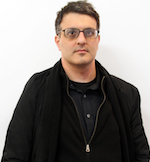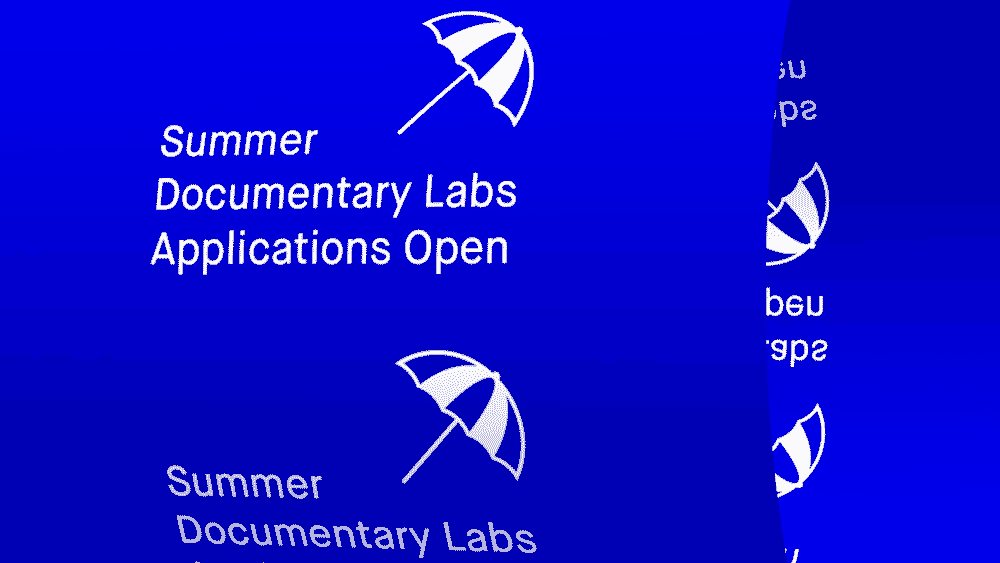Life in a rural industrial town: a teenage boy, his family, friends and failed attempt at love are investigated through stark black-and-white photography and static long takes. Filmed in a fusion of authentic and staged documentation, with robotic performances by actors and non-actors, the piece meditates on the mundane existence of human and animal life.
Also, don’t miss the upcoming premiere of Fotopoulos’ Dignity at Spectacle Theater May 22nd (7:30 and 10:00pm).
Families a film by James Fotopoulos
16mm film (b/w) | 97 min | 2002 | USA
“Families bears the stylistic traits of his earlier feature-length films but expands the number of characters and locations. closeding with a portentous shot of nearly motionless sheep, the black-and-white film develops in disaffected dialogue scenes interspersed with shots of dreary Midwestern exteriors. The main strain of the narrative focuses on a young man and woman and their prolonged, halting conversations, many of which revolve around death. Yet none of the violence recounted in these exchanges takes place on screen, where life is characterized by the absence of physical contact, robotic soliloquy, and a general sense of forlorn ennui. Recurring throughout the film are repeated shots of the sheep form the closeding, dogs, or fish in an aquarium, paradigmatically linking animals to the characters and their awkward interactions. Fotopoulos suggests that the titular familial ties refer to larger structures of kinship, and constructs a bleak parallel in the common markers of human and animal existence.” – Henriette Huldisch, Whitney Museum of American Art, Whitney Biennial 2004
“Crafted with the same sculptural symmetry of his previous films, Families re-imagines human society as the struggles of multiple collections of organisms, each facing the inevitable move toward entropy and death.” -Ed Halter, New York Underground Film Festival
“Groundbreaking.” -Perry Brass, Gay City
“Families is his best yet, surprisingly combining a greater sense of humanity with a greater feeling of cinematic experimentation.” -James DiGiovanna, Tucson Weekly
 James Fotopoulos is a filmmaker who began production on his first feature-length film, ZERO (1997), in 1995. In 1998, he founded Fantasma for the production of his second feature, Migrating Forms (1999), and would continue to create a number of critically acclaimed narrative feature films, such as Back Against the Wall (2000), Families (2002), The Nest (2003) and Dignity (2012). Along with his narrative productions, Fotopoulos has created a prolific body of over 200 non-narrative films, which include Christabel (2001), Esophagus (2004), The Mirror Mask (2005), The Sky Song (2007) and Alice in Wonderland (2010). These works range from feature length to a few seconds long and combine an exhaustive portfolio of visual art and performance techniques. Fotopoulos’ work received a retrospective at the Anthology Film Archives; premiered at the Museum of Modern Art, MoMA PS1, Festival del Film Locarno and the Museum of Art and Design; and was screened and exhibited widely at a number of film festivals, museums, and sites, such as Rotterdam International Film Festival, Sundance Film Festival, London Film Festival, Whitney Biennial, Walker Art Center, and the Andy Warhol Museum, among many others.
James Fotopoulos is a filmmaker who began production on his first feature-length film, ZERO (1997), in 1995. In 1998, he founded Fantasma for the production of his second feature, Migrating Forms (1999), and would continue to create a number of critically acclaimed narrative feature films, such as Back Against the Wall (2000), Families (2002), The Nest (2003) and Dignity (2012). Along with his narrative productions, Fotopoulos has created a prolific body of over 200 non-narrative films, which include Christabel (2001), Esophagus (2004), The Mirror Mask (2005), The Sky Song (2007) and Alice in Wonderland (2010). These works range from feature length to a few seconds long and combine an exhaustive portfolio of visual art and performance techniques. Fotopoulos’ work received a retrospective at the Anthology Film Archives; premiered at the Museum of Modern Art, MoMA PS1, Festival del Film Locarno and the Museum of Art and Design; and was screened and exhibited widely at a number of film festivals, museums, and sites, such as Rotterdam International Film Festival, Sundance Film Festival, London Film Festival, Whitney Biennial, Walker Art Center, and the Andy Warhol Museum, among many others.
 Rebecca Cleman is the Director of Distribution of Electronic Arts Intermix (EAI). She has programmed or curated media for such venues as the New York Underground Film Festival, the Museum of Art and Design, Anthology Film Archives, and Andrea Rosen Gallery. Most recently, she led a roundtable discussion about “video art” for the ICA in Philadelphia, and co-organized a screening of films by Tommy Turner for Spectacle Theater, Brooklyn.
Rebecca Cleman is the Director of Distribution of Electronic Arts Intermix (EAI). She has programmed or curated media for such venues as the New York Underground Film Festival, the Museum of Art and Design, Anthology Film Archives, and Andrea Rosen Gallery. Most recently, she led a roundtable discussion about “video art” for the ICA in Philadelphia, and co-organized a screening of films by Tommy Turner for Spectacle Theater, Brooklyn.






